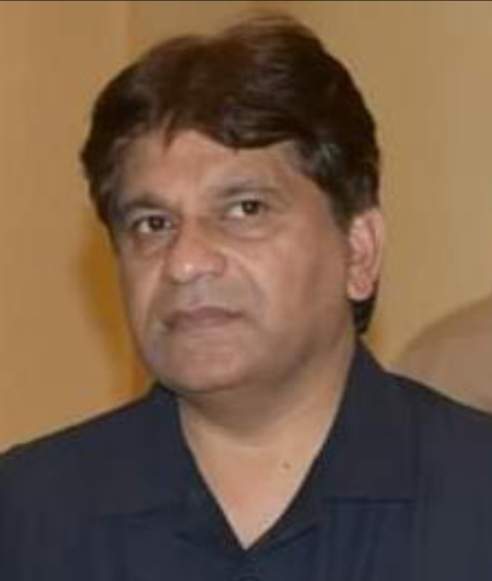By: Nabeela Mazhar & Sumaya Afzal
Pakistan’s path to cyber democracy is gradual, with various governmental and non-governmental organizations working to create a more open and inclusive online space. Some key factors that have contributed to Pakistan’s transformation into a cyber democracy are listed below.
Increasing internet penetration:
 Internet penetration has increased significantly in Pakistan over the past decade. According to the Pakistan Telecommunications Authority, he has over 100 million internet users in the country. This has resulted in a more connected society and improved access to information and communication technology for citizens.
Internet penetration has increased significantly in Pakistan over the past decade. According to the Pakistan Telecommunications Authority, he has over 100 million internet users in the country. This has resulted in a more connected society and improved access to information and communication technology for citizens.
Social Media Activism:
Social media platforms such as Twitter and Facebook have played an important role in shaping the political discourse in Pakistan. Citizen journalists and activists use these platforms to voice their opinions, hold officials accountable, and mobilize support for a variety of causes.
Digital media:
The rise of digital media has provided citizens with alternative sources of news and information. These institutions have played a key role in exposing corruption, exposing human rights violations and promoting democratic values.
Online voting:
The introduction of online voting in Pakistan has made it easier for citizens to participate in the democratic process. The Pakistan Electoral Commission has introduced an online voting system for foreign Pakistanis to increase the participation of foreign voters in elections. Cybercrime Law:
Governments have introduced laws to tackle cybercrime and protect citizens’ rights online. The Electronic Crime Prevention Act 2016 provides a framework for fighting cybercrime while protecting freedom of expression and privacy.
Overall, Pakistan’s transformation into a cyber democracy has been a gradual process, but it is clear that the country has made great strides in creating a more open and inclusive online space.
The concept of cyber democracy refers to using information and communication technology (ICT) to promote democratic practices and values. Pakistan, like many other countries, has a growing interest in cyber-democracy as a means of enhancing political participation, promoting transparency and strengthening democratic institutions. While there is no one-size-fits-all model for cyber-democracy, Pakistan has several trends and initiatives that signal its move towards a more digital and democratic society.
Pakistan approach towards cyber democracy ,it’s practices,and it’s challenges :
A key development in Pakistan’s approach to cyber democracy is the increasing use of social media platforms such as Twitter and Facebook as a means of political engagement. Social media has provided a platform for citizens to voice their opinions, share news and information, and mobilize for social and political ends. Political parties and candidates are also using social media to engage with voters and promote their platforms. However, social media use has also led to the spread of misinformation and hate speech that can undermine democratic processes and institutions.
 Another important development is the increased use of online voting in local elections. In 2015, the Government of Pakistan introduced an online voting system for overseas Pakistani voters to enable them to vote in Pakistan’s general elections. In recent years, the government has extended the use of online voting to local elections with the aim of increasing voter turnout and promoting transparency in the electoral process. However, concerns have been raised about the security and integrity of the online voting system, as well as its potential for fraud and manipulation.
Another important development is the increased use of online voting in local elections. In 2015, the Government of Pakistan introduced an online voting system for overseas Pakistani voters to enable them to vote in Pakistan’s general elections. In recent years, the government has extended the use of online voting to local elections with the aim of increasing voter turnout and promoting transparency in the electoral process. However, concerns have been raised about the security and integrity of the online voting system, as well as its potential for fraud and manipulation.
Pakistan has also taken steps to increase access to information by introducing the Freedom of Information Act in 2017. The law aims to increase transparency and accountability by giving citizens the right to access government information. In addition, the government has launched several e-government initiatives, such as the National Database and Registration Authority (NADRA) and Citizen’s Portal, which provide citizens with online access to government services and information.
Despite these advances, Pakistan’s transformation into a cyber democracy faces several challenges. These include limited access to ICT in some regions, low rates of digital literacy, and concerns about the security and integrity of online systems. Moreover, Pakistan faces persistent political instability that can undermine democratic institutions and practices. Overall, Pakistan’s approach to cyber democracy is a work in progress with both opportunities and challenges. While some positive developments have been made, such as increased use of social media and online voting, there has been a lack of investment in ICT infrastructure and digital literacy programs, as well as safeguards to ensure the security and integrity of online systems. Continued investment is required. Using digital technologies and platforms to facilitate democratic processes, including civic participation, transparency and accountability. Pakistan presents both opportunities and challenges for cyber democracy.
On the one hand, Pakistan’s internet user population is growing, with around 100 million people using the internet in 2021. This provides the opportunity to use digital platforms for democratic engagement such as: B. Social media platforms such as Twitter and Facebook. But Pakistan’s cyber democracy also faces significant challenges. The country has faced censorship and internet access restrictions in the past, especially during periods of political instability. There are also concerns about the spread of disinformation and fake news on social media platforms, which can undermine democratic processes and contribute to social and political polarization.In recent years, efforts have been made in Pakistan to promote cyber democracy. For example, the government said he launched a citizen feedback portal called ‘Pakistan Citizen Portal’ in 2019, allowing citizens toSend complaints and feedback directly to government officials. In addition, civil society organizations are using digital platforms to facilitate civic engagement and monitor elections.
Overall, Pakistan has both opportunities and challenges for cyber democracy, but government and civil society should work together to ensure that digital technologies are used in ways that promote transparency, accountability and democratic participation. It is important to












